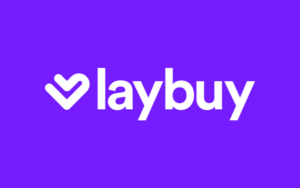
Along with its 300,000 UK users, LayBuy also has a significant presence in Australia and New Zealand, where the company is based. Much like other BNPL providers, it allowed customers to spread the cost of a purchase over multiple instalments without having to pay any interest.
Though LayBuy will no longer be taking on any new business, that does not necessarily mean past debts will be written off and customers should continue to make repayments as scheduled. If a payment is late, the customer will initially be charged £6, then a further £6 a week later if the payment has still not been made. LayBuy refers any customers with a payment more than 42 days late to a debt collection agency and reports repayment data to Experian.
What is Buy Now, Pay Later?
Buy Now, Pay Later (BNPL) is a credit product that lets online shoppers spread the cost of a purchase over a number of weeks or months. With BNPL, a consumer can buy something from a retailer, but pay for it in instalments through the BNPL provider. BNPL providers usually allow weekly, fortnightly or monthly instalments, though LayBuy uses a system of six individual weekly instalments. Other providers allow you to defer the entire cost until a set date in the future.
BNPL is an attractive option because it allows shoppers to make a purchase that they would not be able to afford if they had to pay the full amount upfront. However, there are risks and potential extra costs involved in taking on debt, especially if you are unable to pay it off on time. Buy Now, Pay Later is also known by the less catchy term 'point-of-sale credit'. This is because BNPL is exactly that: credit. While the slick branding and ease of access may be different from other forms of borrowing, it is, in effect, a short-term loan and could impact your credit rating or leave you in problem debt.
What does administration mean for LayBuy customers?
Any LayBuy customers should continue to make their agreed repayments. While the LayBuy website has been disabled and it is no longer accepting new customers, existing customers’ credit agreements will still be valid at the time of writing. Sam Ballinger, joint administrator at FTI Consulting, which is handling the administration process, said “Laybuy is not currently accepting new transactions, however, customers should continue to make payments as normal.” Customers should still be able to log into any existing accounts to update payment details and make repayments.
A creditor entering administration does not mean that all debts suddenly disappear. Missed payments could still incur late fees, lead to a referral to a debt repayment agency, end up on your credit file and damage your credit score, even though the company you owe money to is going out of business.
Most Buy Now, Pay Later schemes rely on partnerships with retailers to promote the BNPL option and LayBuy had partnered with around 2,600 businesses to enable shoppers to use its services on certain products. Any customers who have recently made a purchase using LayBuy and are waiting for a delivery should expect this to arrive as normal. If a customer needs to return or exchange a product bought using LayBuy, they should still be able to contact customer services. However, this option may not be available for long, depending on how the administration process plays out. The administrator has set up a dedicated website for updates that affected customers can check.
What alternatives are there to Buy Now, Pay Later?
The best alternatives to Buy Now, pay Later will depend on your financial situation. You could consider a credit card with 0% interest offers on purchases and/or balance transfers, with the best deals allowing you to spread payments for more than a year with some providers, without incurring interest. Head to our article 'How to choose the best credit card for you' for an overview of the cards available and what might suit you.
Alternatively, this may be an opportunity to get into good savings habits. There are a range of apps that can help create a healthy savings pot to fund future purchases or you could check out the best savings accounts in the UK.
